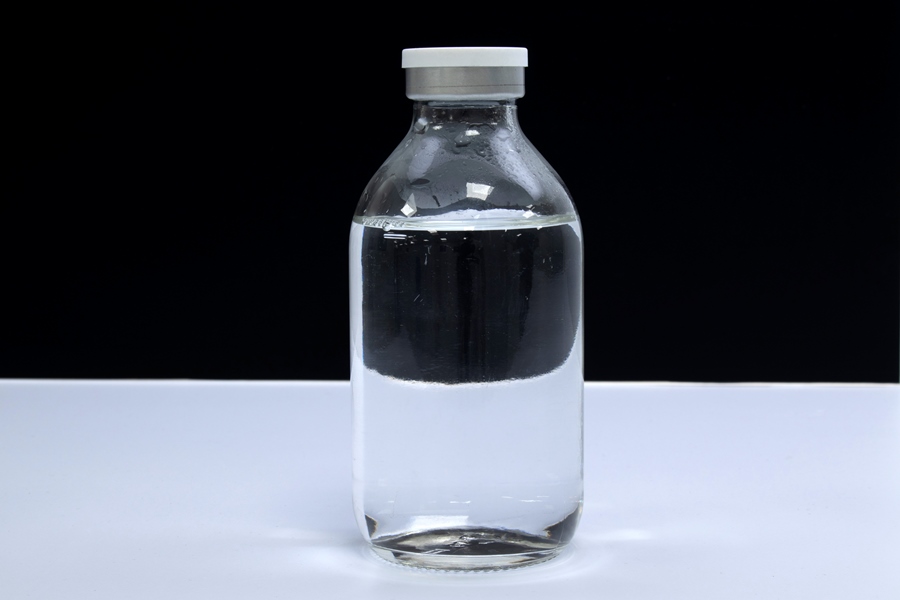When you or someone you care about experiences a medical event involving alcohol or is going through addiction treatment, you may see the term “EtOH” appear in medical records or on hospital bills. After seeing EtOH appear in records, it’s common to wonder what it means.
We’ll review everything you need to know in this article, so stick around for all the details.
Introduction to EtOH
EtOH is the scientific abbreviation for ethanol or ethyl alcohol. Ethanol is the ingredient in alcoholic beverages that makes people drunk.
You’ll most commonly hear the term EtOH used in medical settings or on hospital bills. For instance, if you received treatment for alcohol withdrawal, it may appear on the bill or in documentation as “EtOH withdrawal treatment.”
Chemical Composition and Applications of EtOH
The chemical composition of EtOH is C₂H₅OH. This chemical formula means that two carbon atoms, five hydrogen atoms, and one hydroxide atom are combined to create ethanol that’s used in alcoholic beverages. This combination of chemicals results in a colorless, highly flammable, volatile liquid with a burning taste and pleasant odor.
Since it’s a significant portion of alcoholic beverages, it can contribute heavily to its smell and taste. That’s why beverages like vodka that are really high in alcohol content will have more of that burning taste when you drink them, whereas a light beer won’t burn as much since the ethanol presence is lower.
In addition to alcohol, ethanol is also used in:
- Pharmaceuticals: Tonics, rubbing compounds, and lotions.
- Cosmetics: Perfumes and colognes.
- Food: Food additives and food coloring.
- Fuel: Gas that powers vehicles and household appliances.
- Hand sanitizer: Gels and medical wipes.
- Industrial solvents: Liquids used to dissolve fats, oils, resins, and waxes in material production processes.
Therefore, you may see ethanol or ethyl alcohol on labels for many things, like a hand sanitizer bottle or cosmetics you use daily. That said, you’ll most commonly see the abbreviation EtOH in medical settings. Let’s review some of the most common medical terminology where it’s used.
Medical Terminology Involving EtOH
The most common uses of EtOH in medical or addiction treatment settings include:
- EtOH use: When someone has consumed alcohol. This doesn’t necessarily mean that someone has a problem drinking, and it may even be used in scientific research on how alcohol consumption affects the body.
- EtOH test: Refers to breathalyzer tests or urine, blood, hair, or saliva samples that are intended to determine if someone consumed alcohol recently.
- EtOH intoxication: Refers to someone who is under the influence of alcohol, specifically when they’re drunk or have a change in behavior because of it.
- EtOH abuse: An alternative term to use when someone has an alcohol use disorder or partakes in binge drinking or uncontrolled drinking.
- EtOH cirrhosis: Another way to refer to a condition called alcoholic cirrhosis, where the liver is swollen, stiff, and barely able to function as a result of heavy long-term alcohol abuse.
- EtOH withdrawal: A medical term used for alcohol withdrawal when someone experiences symptoms like fatigue, shaking, or anxiety after they stop alcohol use.
These terms are commonly used in medical records during addiction treatment. Therefore, knowing that EtOH stands for alcohol and related treatments will help you understand medical records and what you’re being billed for throughout the process.
Health Implications of Ethanol Consumption
Alcohol is one of the most widely used drugs since it plays a big role in many societies and cultures around the world. However, despite its wide use, it can still have harmful and dangerous effects when consumed excessively. Let’s take a deeper look at its short and long-term effects.
Short-Term Effects of Consuming Ethanol
When you consume ethanol in alcohol, it’ll enter the stomach, where it gets digested and absorbed into the bloodstream. Then, once in the bloodstream, it’ll travel to your brain, affecting how you think, feel, and behave.
Alcohol is a depressant, meaning it slows down your central nervous system. This slowing effect can cause things like slurred speech, blurry vision, loss of coordination, and trouble processing thoughts. That’s why you might make poor decisions or get into accidents when under the influence of alcohol and why it’s unsafe to do things like driving afterward.
Other short-term effects of the ethanol in alcoholic beverages include:
- Increased blood pressure, which could interfere with heart problems or cardiovascular conditions
- Slowed breathing, which could exacerbate respiratory conditions
- Confusion
- Memory loss
- More risk-taking behavior
- Loss of consciousness
- Vomiting
These effects are more likely to occur when you drink in excess. That’s why moderation is key for a safe drinking experience.
Long-Term Effects of Consuming Ethanol
When you frequently consume large amounts of ethanol in alcohol over a long amount of time, it can have severe consequences on your health and well-being. Common long-term health risks from EtOH abuse include:
- Increased risk of cardiovascular conditions, such as heart disease, hypertension, arrhythmias, heart attack, and stroke
- Increased risk of liver disease
- Damage to the musculoskeletal system that can lead to severe muscle weakness and increase the risk of bone fractures.
- Damage to the central nervous system that can reduce cognitive function and motor ability.
Addiction and Dependence
Ethanol is an addictive substance when you consume it in high amounts over a long duration of time. You can develop both a physical and psychological dependence on it.
Physical dependence will lead to withdrawal symptoms in the body when you stop drinking alcohol, such as shaking, muscular soreness, or nausea.
Psychological dependence will lead to mental withdrawal symptoms when you stop drinking, such as anxiety, depression, or feeling like you can’t function normally without it.
These symptoms are why it can be hard to stop drinking on your own. Therefore, it’s often a good idea to seek help at a treatment center where medical professionals can make withdrawal symptoms easier to manage and teach you life skills to maintain sobriety long-term.
Recognizing and Addressing EtOH Abuse
Unfortunately, it’s estimated that about 28.9 million people in the U.S. each year struggle with an alcohol use disorder (AUD). Therefore, if you think you or someone you care about might be struggling with EtOH abuse, it’s important to look for the signs and symptoms to prevent its long-term health consequences.
Common signs and symptoms of EtOH abuse are:
- Trying to stop drinking and not being able to
- Experiencing withdrawal symptoms (physical or mental) when you stop drinking
- Drinking more and more alcohol over time
- Spending a lot of time thinking about, trying to get, or using alcohol
- Stopping participation in social activities or things once enjoyed
- Not stopping drinking despite negative consequences in your life
- Problems at work, school, or in relationships
- Financial difficulties
- Drinking alcohol at times when it isn’t appropriate to do so, such as before work
When someone experiences these signs and symptoms, proper treatment is important for a full recovery. Going to a treatment center is a good first step toward getting a diagnosis and learning about recovery options.
Conclusion
Overall, it’s important to monitor EtOH use since alcohol can have dangerous effects when you drink too much or become dependent on it.
Therefore, make sure you’re implementing best practices like drinking in moderation (no more than 2-3 drinks in a day), not letting anyone pressure you to drink more, and limiting how many times you drink alcohol each week.
If you or someone you care about is struggling with EtOH abuse, we’re here to help at the United Recovery Project. We offer medical detox and residential treatment that can be tailored to your needs for effective care that leads to long-term sobriety. Contact us today to learn more about getting started.
References
- Centers for Disease Control and Prevention. “Alcohol Use and Your Health.” Alcohol Use, 9 May 2024, https://www.cdc.gov/alcohol/about-alcohol-use/index.html
- Berger, Douglas. “Medical Complications: Common Alcohol-Related Concerns | National Institute on Alcohol Abuse and Alcoholism (NIAAA).” www.niaaa.nih.gov, 10 Apr. 2023, https://www.niaaa.nih.gov/health-professionals-communities/core-resource-on-alcohol/medical-complications-common-alcohol-related-concerns
- National Institute on Alcohol Abuse and Alcoholism. “Alcohol Use Disorder (AUD) in the United States: Age Groups and Demographic Characteristics.” www.niaaa.nih.gov, 2024, https://www.niaaa.nih.gov/alcohols-effects-health/alcohol-topics/alcohol-facts-and-statistics/alcohol-use-disorder-aud-united-states-age-groups-and-demographic-characteristics






